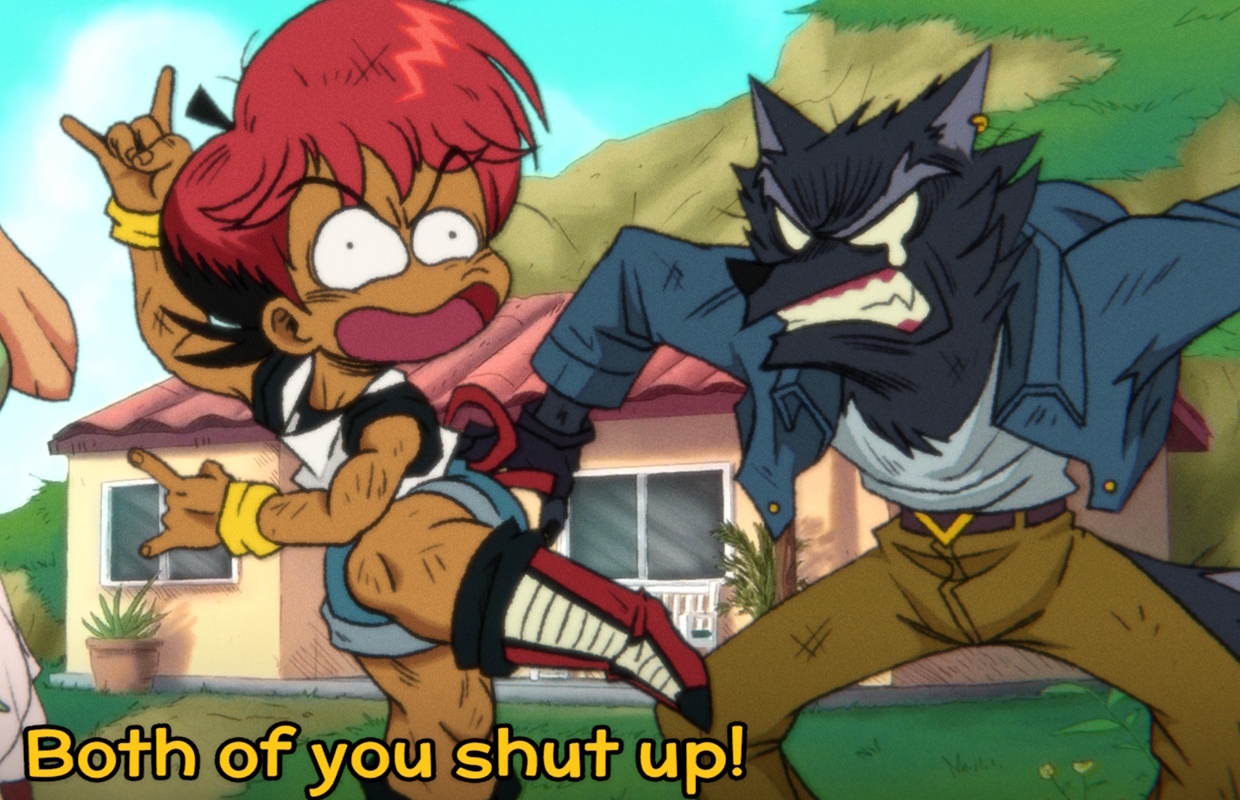
I’ve always been fascinated by language – not just the meaning of words, but *how* we use them. For me, writing is like solving a puzzle, carefully arranging words until they convey exactly what I intend. That’s why I was so excited about Wander Stars: a role-playing game that cleverly uses words as tools, combining my passion for language with the fun of anime-style adventures.
Wander Stars, created by Paper Castle Games and published by Fellow Traveller, clearly draws inspiration from classic sources. Its style and storytelling feel intentionally reminiscent of ‘90s anime. The game features an interesting battle system where you build attacks by combining words, which is a cool idea. However, the system doesn’t always live up to its potential, and some design choices can make battles feel slow.
The story is told through ten episodes, each starting with a title card and having a fast-paced feel similar to 1990s anime like shōnen and space operas. Players control Ringo, a young martial artist who lives with her grandmother. The adventure begins when Ringo meets Wolfe, a talking wolf who mysteriously crashes on her island. Together, they search for pieces of the Wanderstar Map, which supposedly leads to a legendary artifact with the power to reveal the secrets of the universe. Though they start off as reluctant partners, Ringo and Wolfe gradually become close friends.
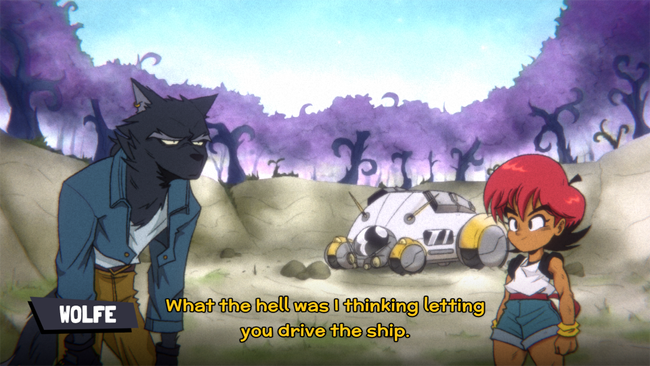
If this sounds like a classic adventure, that’s intentional! The game leans heavily into familiar tropes and characters you’ll instantly recognize. You’ll guide Ringo as he battles space pirates, chats with witches, and meets talking animals, all presented with a sincerity that makes the over-the-top story enjoyable. The game is broken into short, self-contained chapters that are packed with flavor, giving you just the right amount of story to keep you moving forward. For those who grew up watching shows like Dragon Ball Z on Toonami, this straightforward and heartfelt approach really works.
Wander Stars’ core gameplay revolves around its unique battle system, which is both impressive and a little rough around the edges. Instead of memorizing pre-defined attacks, you *create* them using words. You combine action words like ‘Kick’ or ‘Block’ with elemental words like ‘Fire’ or ‘Ice,’ and then add modifiers like ‘Super,’ ‘Wide,’ or ‘Fast’ to build powerful and customized attacks. The first time you successfully create a combination like ‘Super Fire Kick,’ it feels like crafting a perfect sentence – and it’s incredibly satisfying. Combat is playful, encourages creativity, and feels unlike anything else.
However, the game has some frustrating restrictions. Before each round, you choose your words, and you’re stuck with them – you can’t swap them out mid-battle. This means if you prepare for ice-based enemies, but encounter mostly resistant foes, you’re in trouble. Furthermore, for a significant portion of the game, you have a limited vocabulary. While you can theoretically create complex attack combinations, you’ll often find yourself relying on the same basic moves.
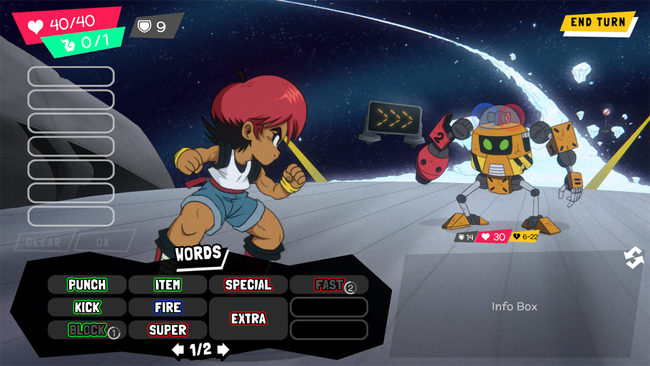
A smart addition to the gameplay is the ability to spare enemies instead of defeating them. If you choose to let an enemy go instead of knocking them out, you receive a temporary boost called a “Pep” that lasts for the entire episode. These boosts can improve your stats, grant immunity to certain attacks, or even give you more word slots during battles. This creates an interesting trade-off: do you quickly eliminate enemies to stay safe, or risk a longer fight to gain a stronger vocabulary for the upcoming boss? This system also encourages players to explore maps fully and defeat all enemies. Additionally, the game offers rare, permanent upgrades to health and other stats, providing a sense of progress without relying on traditional RPG leveling systems.
Between battles, the game takes place on a map resembling a game board. You travel between different points on the map, where you’ll find conversations, fights, shops, and hidden items. This map adds a bit of replayability, similar to roguelite games, but it doesn’t change enough to stay consistently interesting. While the overall gameplay works well, it doesn’t always feel as innovative as the combat system intends.
Even though the battles aren’t always smooth, Wander Stars shines with its unique style. The game has a vibrant, distinctly anime-inspired look, filled with bright colors, striking character designs, and expressive portraits reminiscent of classic ’90s anime like Trigun and Sailor Moon. The presentation relies heavily on static images for characters during battles and cutscenes, giving it a visual-novel feel. While the few fully animated cutscenes are well-made, they also highlight just how still the rest of the game appears.
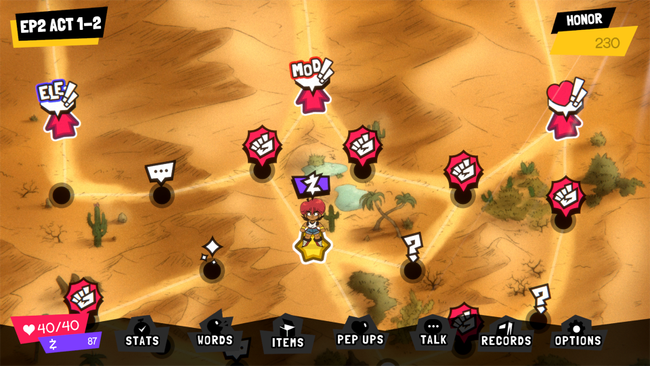
The game’s sound design is just as impressive. Battle music is powerful and bold, using a lot of brass instruments to make even simple fights feel epic. After a battle, the transitions are visually and musically striking, similar to the Persona series. Sound effects are intentionally over-the-top and punchy, making each hit and spell feel impactful. While the battle system can sometimes feel slow, the amazing visuals and sound effects consistently keep you engaged.
Wander Stars isn’t the first game to use language as a gameplay element – games like Letter Quest have previously built RPGs around spelling. However, those games primarily tested how *many* words you knew. Wander Stars is different; it focuses on the subtle meanings and connections between words. This focus on nuance is what makes the game stand out. I actually enjoyed figuring out how words combined and changed meaning almost as much as I enjoyed the battles themselves.
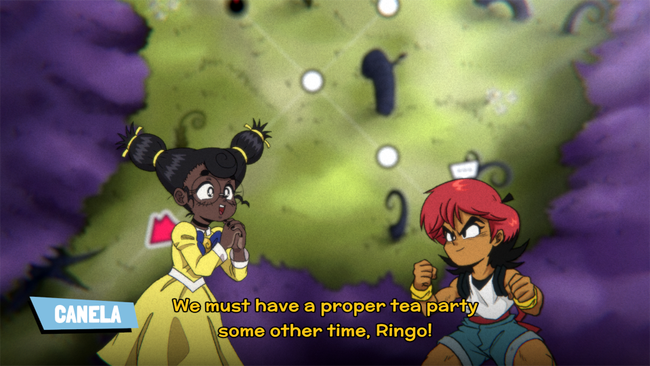
I’m really digging Wander Stars – it’s got so much personality! What I love most is the core idea behind the game; it’s rare to find a game that makes me think about language in such a fun, creative way, especially one that looks this good. Honestly, even when the battles started to feel a little samey, I kept playing because the over-the-top anime story and the game’s overall charm just pulled me in. It really carried things through, even when the combat got repetitive later on.
If you enjoyed anime from the 1990s or appreciate RPGs that try new things, Wander Stars is definitely worth checking out. While it doesn’t quite live up to its full promise, the best moments – whether a clever line of dialogue or a well-timed attack – are incredibly rewarding.
7
We tested Wander Stars on PlayStation 5. It’s also playable on Xbox Series X|S, Nintendo Switch, and PC.
Read More
- All Golden Ball Locations in Yakuza Kiwami 3 & Dark Ties
- NBA 2K26 Season 5 Adds College Themed Content
- What time is the Single’s Inferno Season 5 reunion on Netflix?
- Hollywood is using “bounty hunters” to track AI companies misusing IP
- Brent Oil Forecast
- Mario Tennis Fever Review: Game, Set, Match
- Heated Rivalry Adapts the Book’s Sex Scenes Beat by Beat
- BREAKING: Paramount Counters Netflix With $108B Hostile Takeover Bid for Warner Bros. Discovery
- EUR INR PREDICTION
- All Itzaland Animal Locations in Infinity Nikki
2025-09-26 05:57